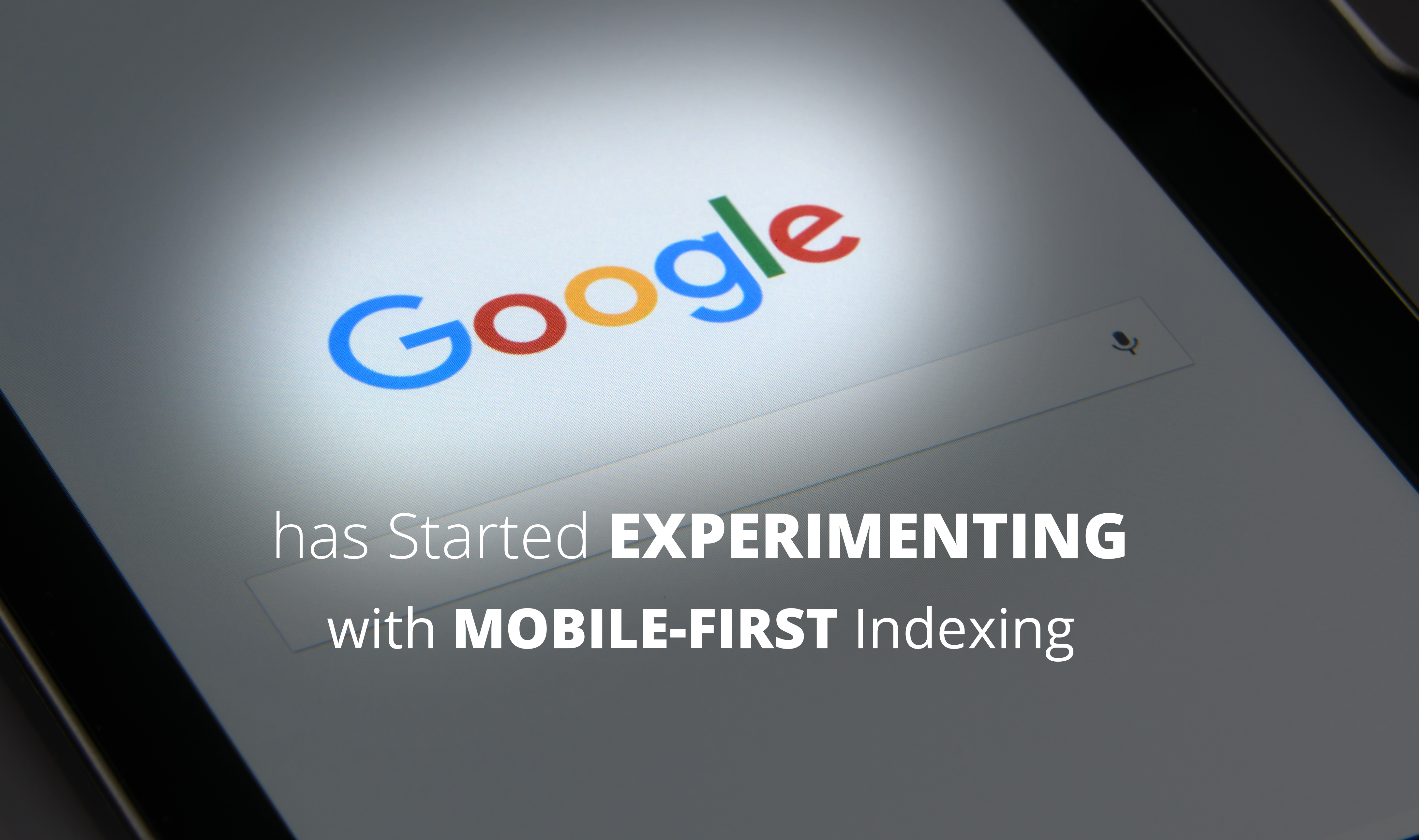It is extremely common to find people using their mobile phones to search for Google content. Desktop search has taken a back seat according to research. This has prompted Google to create a mobile-first search index. This means that Google’s index will prioritize crawling their mobile index to comprehend how or why content should be indexed in search. The testing process is already underway. How can this affect future mobile-based Google content search?
Then And Now – The Crucial Difference
The earlier indexing habits of Google were based on crawling web pages designed for desktop searching. They were later indexed inside both the desktop and mobile search results index. Now, with more people using their smartphones to search for content, Google felt that a change in indexing methods was in order. As Google’s present algorithm does not evaluate the page that a person will see through their mobile device, they might be viewing limited content than what they will probably view on their desktop.

The ‘Experiment’ Is Underway
The “experiment” as Google terms it, will continue for some time now as the indexing will continue on a smaller scale. It will be scaled up when the engineers are convinced that they have indeed managed to appreciably improve user experience. They are aware that the project needs continuous tweaking as they move ahead to achieve the projected goals.
Google is aware of the fact that many people see this as a sudden and unexpected move. That’s why steps have been taken to prepare web users, webmasters and SEO specialists for this major shift. Google is encouraging all those associated with the process to read their recently-released recommendations and understand them carefully so that the transition can be made smoothly.
How It Can Affect Your Website
If your website has already been designed to be responsive or dynamic and offers primary content that appears the same on desktop and mobile, then you hardly need to make any changes. Alternately, if your website configuration is such that the primary content and markup is disparate from one another, it is imperative that you incorporate the changes suggested by Google to make them appear the same on all browsing mediums.
Serve a structured mark-up for both the desktop and mobile versions of your website – this is the first step that webmasters must do to comply with Google’s newest notification. The Structured Data Testing Tool is the right way to verify the structured markup across desktop and mobile by inputting the URLs of both mobile and desktop versions into the tool. The output can be compared here.
Adding of structured data to the content must also be done in a practical and logical manner advises Google. Adding data in large quantum and that which is not relevant to the existing content must be avoided. Webmasters can make use of the robots.txt testing tool to ensure and confirm that the mobile version of their website is accessible to Googlebot.
What You Need Not Worry About
Websites are not required by Google to make any changes to their canonical links to comply with the responsive or dynamic needs. In this matter, Google has made it clear that these links will be used as guides to deliver the most appropriate results to users searching for content on desktop or mobile. The mobile version of website must be verified in the Google Search Console only after webmasters have verified their desktop site.
Those who only have a desktop site need not worry about making any changes or deal with compliance rules. Such websites will be indexed normally as they were done earlier by Google. This will hold valid even if the website is using a mobile user agent to view their website.
Launch Websites Only When Fully Ready
An important thing that webmasters who are in the process of building a mobile version of their website to consider: A functional desktop-optimized website is always better than an incomplete or broken mobile version of your website. Google advises you to first build your website and launch it only when it is fully ready in all respects.
There are many important and rapid developments taking place on the responsive web development front. Webmasters and SEO professionals are keeping a close watch on the announcements emanating from Google. They know that they have to remain alert and think on their feet because what is relevant today may become completely obsolete tomorrow.
Adapting to the changes demanded by Google is the key to survival of businesses in the increasingly cutthroat marketplace. Webmasters and professionals associated with website designing and development and keen to learn newer methods and technologies are excited at the prospect. A newer element of web-based technology is soon going to unravel and will bring along a host of exciting possibilities.
Read Interesting Topic : Three Steps to Know If Google’s Mobile Update affected Your Website






 Live Chat
Live Chat
